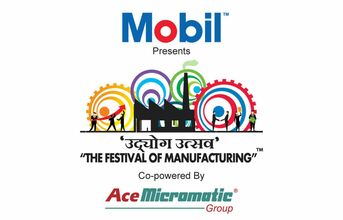
India's manufacturing sector, through the years, has managed to set a tone for innovation and has today become the most sought-after destination for foreign investments. Adding to it, Hon' Prime Minister Narendra Modi-launched ‘Make in India' programme, which has given Indian manufacturing a well-deserved global recognition.
Launched in the year 2014, Make India is transforming the country into a leading global manufacturing and investment destination, achieving substantial achievements in 27 sectors, including strategic sectors of manufacturing and services.
On account of the campaign soon completing a decade, the 2nd edition of The Festival of Manufacturing aims to initiate a dialogue about the impact this initiative has had across various manufacturing sectors. Whether in pharmaceuticals, construction, or automotive industries, the theme, 'Celebrating 10 Years of Make in India,' will prompt discussions about the progress seen till date, the challenges yet to be overcome and outline a vision for the next decade. Presented by ExxonMobil, Co-Powered by Ace Micromatic Group, and with igus India as its Associate Partner, the festival is set to take place on March 7, 2024, at Dr Ambedkar International Centre, Delhi.
10 reasons why the Make in India campaign should be celebrated:
Spurring Economic Growth: Over the past decade, ‘Make in India' has been a key contributor in propelling economic growth. India has emerged the 5th largest economy and has jumped six positions up in the world ranking, since 2012. It has also attracted significant investments and bolstered GDP. Since the launch of this campaign, there has been a 100x rise in GDP, which is currently pegged at USD 3.5 trillion. India's rate of growth is now at 7 per cent (FY22-23) which is only accelerating. Through the implementation of different programmes and policies, the Indian government hopes to have 25 per cent of the economy's output from manufacturing by 2025.
Growth in FDI: The annual FDI has doubled in the last 8 years. Since the launch of Make in India in 2014, the share of FDI has increased from USD 35Bn to USD 84 Bn.
Rise in Self-reliance and Export Growth: 'Make in India' played a pivotal role in promoting self-reliance, with a 500x rise in total exports, reaching a record USD 770 billion in 2022-23. India aims to export goods worth USD 1 trillion by 2030. Furthermore, the campaign has also provided a global platform to Indian craftsmen to showcase their unique and quality state-of-the-art products, branded under the ‘Made in India' tag.
Job Creation: The initiative has been offering employment opportunities across various sectors and skill levels, thus contributing to reducing unemployment.
Skill Development and Entrepreneurship: 'Make in India' has fostered skill development initiatives, empowering the workforce and nurturing entrepreneurship.
Sustainable Manufacturing Practices: Make in India has advocated for sustainable manufacturing practices, promoting eco-friendly production methods, and contributing to environmental conservation.
Enhanced Manufacturing Infrastructure: Make in India has spurred the development of world-class manufacturing infrastructure, facilitating efficiency and global competitiveness.
Technological Advancements: The initiative has encouraged technological innovation, fostered a culture of research and development, and led to groundbreaking advancements in diverse industries. With the advent of Industry 4.0, not only has it increased efficiency, but it has significantly improved industrial output and quality.
Showcasing ‘Brand India' on the global stage: India's manufacturing prowess has gained global recognition, attracting foreign collaborations, partnerships, and investments, positioning the nation as a manufacturing hub.
Tapping in new sectors: Make in India has encouraged India to diversify beyond traditional sectors, embracing new-age industries such as biotechnology, renewable energy, and electronics.
Our Brand Ambassadors
- Ashok Minda, Executive Chairman and Group Chief Executive Officer, Minda Corp. Ltd
- Amar Variawa, Vice President and Country Head, Vestas India
- Vipin Rana, CEO, ExxonMobil Lubricants Private Limited
- K Suresh, Chief Operating Officer, Birla Cellulose, Grasim Industries Limited
- Kamal Bali, President and MD, Volvo Group, India
- Venu Nuguri, Managing Director & CEO, Hitachi Energy in India and South Asia
- Prashanth Doreswamy, President and CEO, Continental India
- Preeti Bajaj, CEO & MD, Luminous Power Technologies
- T K Ramesh, Managing Director, Micromatic Machine Tools
- Uday Narang, Founder and Chairman, Omega Seiki Mobility and Anglian Omega Group
- Siddharth Bargi, Founder, Chairman and CEO, Pravaig Dynamics
- Harish Chavan, CEO, Swaraj Tractors
- Raman Mittal, Joint Managing Director, International Tractors Limited
- Sanjaya Mariwala, Executive Chairman and Managing Director, OmniActive Health Technologies and President, Association of Herbal and Nutraceutical Manufacturers of India (AHNMI)
